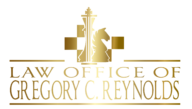Frequently Asked Questions
FAQ
please do not hesitate to contact us with your questions
What are your safety protocols during the pandemic?
We take safety VERY seriously for everyone’s well-being. We strive to communicate via phone, text, virtually and email. However, should an in-person meeting take place, masks and social distancing is strongly enforced. Curbside meetings are also promoted.
What does an Owners Title Policy Cover?
An owner’s policy protects your interest in the property against such hidden hazards as:
- Mistakes in the recording of legal documents
- Forged deeds, releases or wills
- Undisclosed or missing heirs, including spouses
- Deeds by persons of unsound mind
- Deeds by minors
- Deeds executed under an invalid or expired power of attorney
- Liens for unpaid taxes
- Fraud
For a one-time premium paid during the closing process, your title insurer assumes responsibility for all legal expenses to defend the title to your property if ever challenged. If the defense is unsuccessful, you are reimbursed for any reduction in the value of the land. It is an important layer of security and protection.
What is a Title Search?
A title search is a detailed examination of all available public records on a property to verify the seller’s right to transfer ownership, and to discover any potential challenges in the closing and ownership process. A title search should reveal unpaid taxes, unsatisfied mortgages, judgments against the seller, and restrictions limiting the use of the land. However, even the most diligent search may fail to reveal some hidden hazards, such as those mentioned above that Title Insurance protects from.
How long does the title insurance coverage last?
A lender’s policy lasts until the mortgage is paid in full. An owner’s policy remains in force as long as you or your heirs have an interest in the property. If challenges to title arise after the property has passed to your heirs, the title insurance company would defend the title for them just as it would for you.
What is Escrow?
As a buyer or seller, you want to be certain all conditions of your sale have been met prior to property and money changing hands. The technical definition of an escrow is “a transaction where one party engages in the sale, transfer, or lease of real or personal property with another person who delivers a written instrument, money or other items of value to a neutral third person, called an escrow agent”. The escrow agent holds the money or items for disbursement upon the performance of a specified condition.
Simply stated, the escrow agent impartially carries out the written instructions given by the principals. This includes receiving funds and documents necessary to comply with those instructions, completing or obtaining required forms and handling final delivery of all items to the proper parties upon successfully completion of the escrow.
The escrow agent must be provided with the necessary information to close the transaction. This may include loan documents, tax statements, fire and other insurance policies, terms of sale and any financing obtained by buyer, and requests for various services to be paid out of the escrow funds.
If the transaction is dependent on arranging new financing, it is the buyer’s responsibility to make the necessary arrangements. Documentation of the new loan agreement must be in the hands of the escrow agent before the transfer of property can take place. When all instructions in the escrow have been completed, the closing can take place. At this time, signatures are obtained by all parties, all outstanding funds are collected, and fees such as title insurance premiums, real estate commissions, inspection charges, etc. are paid. Title to the property is then transferred under the terms of the escrow instructions and the appropriate title insurance policies are issued.
What are your Fee's?
Check out our Fee Schedule
Why do i need a lawyer?
This is a frequently asked question I get, along with “Can’t I just do this myself using an online form site?” Yes. You “can.” You can also perform surgery on yourself…but I wouldn’t advise it just to save on medical bills.
Unfortunately, I have been forced to tell many of my clients that the legal document that they have presented to me that their loved one prepared on their own is legally insufficient, and, therefore, not valid. Often after their loved one has already passed and it cannot be corrected.
Hence, the risks of failing to prepare legal documents on your own with the precision that the law commands are FAR outweighed by the benefits that you will receive by retaining the services of an experienced attorney at an affordable cost.
And whether you need a Will, Power of Attorney, Advanced Medical Directive, Deed or Contract of Sale, etc.? The Law Office of Gregory C. Reynolds will ensure that all of your legal documents meet and exceed the highest standards of the law, accurately reflect your wishes, and will survive any future scrutiny or legal challenges that may arise…even long after you have passed.
Do I Really Need an Attorney?
I get asked this question along with “Can’t I just do this myself using an online form site?” Yes. You “can.” You can also perform surgery on yourself…but I wouldn’t advise it just to save on medical bills.
Unfortunately, I have been forced to tell many of my clients that the legal document that they have presented to me that their loved one prepared on their own is legally insufficient, and, therefore, not valid. Often after their loved one has already passed and it cannot be corrected.
Hence, the risks of failing to prepare legal documents on your own with the precision that the law commands are FAR outweighed by the benefits that you will receive by retaining the services of an experienced attorney at an affordable cost.
And whether you need a Will, Power of Attorney, Advanced Medical Directive, Deed or Contract of Sale, etc.? The Law Office of Gregory C. Reynolds will ensure that all of your legal documents meet and exceed the highest standards of the law, accurately reflect your wishes, and will survive any future scrutiny or legal challenges that may arise…even long after you have passed.
What is the difference between Joint Tenants and Tenants by the Entirety Deeds?
These Deeds simply add another person along with you to your current Deed and the property automatically transfers to the surviving owner listed on the Deed.
Joint Tenant Deeds are used when adding someone other than your spouse. Whereas, the Tenants by the Entirety Deed is utilized to add your spouse.
Advantage: Since these types of Deeds carry with them a right of survivorship, nothing needs to be done upon your passing. By operation of law, the survivor owns the whole of the property and no further action is required by the survivor to gain title to the real property.
Disadvantage: These Deeds give the person you are adding equal ownership and control over the real estate while you are alive. Hence, if you changed your mind later and decided to sell the property or simply transfer the property back to you, you would need permission and signature(s) of the person(s) that you added to title.
What is a life estate with powers of sale deeds?
Life Estate Deeds without Powers of Sale identifies those that will receive title to your property upon your passing.
Again, this type of Deed is used when the owner of the property wishes to transfer property upon their death but does not wish to add someone as an actual joint owner of the property during their lifetime.
Advantages: There is normally a five-year “look back” period when applying and qualifying for medical assistance, i.e. as long as this type of Deed is executed more than five years before you are applying for Medical Assistance, Medicaid, etc., it is likely that the property MAY NOT be considered an asset that would be subject to sale or lien. As such, this type of Deed is a PHENOMENAL tool to utilize, especially if your home is your only truly valuable asset. Your heirs would still be able to take the property after you pass, even if you were received Medical Assistance/Medicaid prior to your death. Many people lose their family home when receiving Medical Assistance, and this is a great way to ensure that your heirs are still provided for even if you pass without any other assets.
Disadvantages: These Deeds CANNOT be undone without the consent of the remaindermen, e.g. if you changed your mind about later selling or refinancing or wanted to undo this type of Deed, all remaindermen would have to consent to the same. Hence, you are no longer in complete control of your real estate
What is a Life Estate without powers of sale deeds?
Life Estate Deeds without Powers of Sale identifies those that will receive title to your property upon your passing.
Again, this type of Deed is used when the owner of the property wishes to transfer property upon their death but does not wish to add someone as an actual joint owner of the property during their lifetime.
Advantages: There is normally a five-year “look back” period when applying and qualifying for medical assistance, i.e. as long as this type of Deed is executed more than five years before you are applying for Medical Assistance, Medicaid, etc., it is likely that the property MAY NOT be considered an asset that would be subject to sale or lien. As such, this type of Deed is a PHENOMENAL tool to utilize, especially if your home is your only truly valuable asset. Your heirs would still be able to take the property after you pass, even if you were received Medical Assistance/Medicaid prior to your death. Many people lose their family home when receiving Medical Assistance, and this is a great way to ensure that your heirs are still provided for even if you pass without any other assets.
Disadvantages: These Deeds CANNOT be undone without the consent of the remaindermen, e.g. if you changed your mind about later selling or refinancing or wanted to undo this type of Deed, all remaindermen would have to consent to the same. Hence, you are no longer in complete control of your real estate
What is a simple deed transfer during your lifetime?
If you wished to do an outright gift of your property during your lifetime, a simple Deed doing a transfer of title can be accomplished as well. Obviously this type of Deed should ONLY be considered when you want to relinquish all title and control over the asset immediately upon execution thereof.
Contact us

